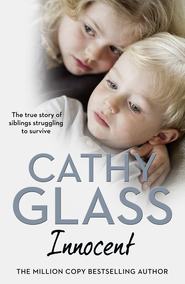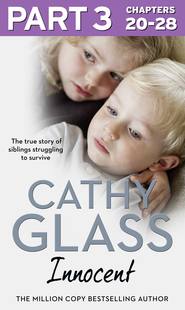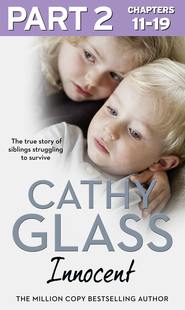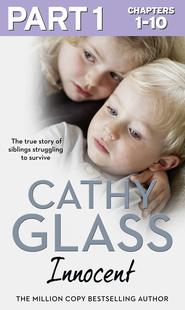По всем вопросам обращайтесь на: info@litportal.ru
(©) 2003-2024.
✖
Where Has Mummy Gone?: A young girl and a mother who no longer knows her
Настройки чтения
Размер шрифта
Высота строк
Поля
‘You don’t have to apologize,’ I said. ‘It’s not your fault. Your mum is upset because you are in care. It will get easier for her each time she sees you at contact as she gets used to it. Did you have a nice time?’
‘I think so. I gave her the rice pudding.’
‘Good.’ I’d noticed Melody wasn’t carrying the stay-fresh box. ‘Did she like it?’
‘She hasn’t eaten it yet. She’s going to take it home and have it for her dinner. There’s nothing else there.’ Hearing that, all my anger evaporated and my heart went out to Amanda again. The picture of that fragile, emaciated woman, aged beyond recognition, who’d lost all her children into care, sitting alone in her cold, damp flat eating rice pudding moved and worried me. I’d telephone Jill in the morning and make sure Neave was aware of just how needy Amanda was, for when a child is taken into care the social services have a duty to help the parents where possible.
When I dished up the cottage pie that evening I set aside a portion with vegetables and gravy for Amanda. Once it had cooled, I’d put it in the freezer to take with us to contact on Friday. Melody had said there was a microwave and kettle in their flat but no cooker or hob, and I knew there was a microwave at the Family Centre. Despite Amanda’s rudeness, the woman needed help.
After dinner I left the washing up for later, and as Adrian, Lucy and Paula disappeared off to do their homework I told Melody to fetch her book bag from where she’d left it in the hall. We then sat together at the table and I helped her with her homework – reading, and spellings to learn. She needed a lot of help, but unlike some children I’d fostered who’d come from homes where education wasn’t a priority, she had the right attitude and wanted to learn. ‘Mum says you can get a good job and earn lots of money if you go to school and pass your exams.’ Which was ironic considering her mother hadn’t been sending Melody to school, but I didn’t comment.
After Melody had finished her homework I began her bath and bedtime routine, finishing with a bedtime story. She was in bed in her new pyjamas at eight o’clock. I find bedtime, when the child is tired, is when they can start fretting and worrying. Far from being reassured by seeing her mother at contact, Melody was even more anxious, as indeed I was. Now I’d met Amanda I had a better understanding and appreciation of Melody’s concerns.
‘Melody, I don’t want you to worry about your mother,’ I said. ‘Tomorrow I’m going to telephone Jill – you met her – who will speak to Neave and make sure your mother is OK.’
‘Mummy is never OK,’ Melody lamented. ‘She’s getting worse. She forgets to eat, get up and get dressed or go where she has to. That’s why she was so late.’
‘Is she still drinking alcohol or taking drugs?’ I asked her gently. ‘You know what I mean by drugs?’
‘Yes. I don’t think so. I haven’t seen her do it for a bit. The man upstairs calls her nuts, and says she’s done her head in with the stuff she put in her arm, but she can’t help it.’
‘No, all right.’ I looked at her thoughtfully. Neave had said that Amanda had been funding her drug habit from prostitution and had asked if I could find out if she’d brought clients back to their flat, which opened up the possibility that Melody had witnessed her mother with a man or, heaven forbid, had been sexually abused herself. Foster carers can’t afford to be squeamish or delicate about these matters and now seemed like a good time to ask. ‘Melody, do you know where your mummy got her money from?’
She nodded. ‘Benefits. I know because I had to help her get the money out of her bank so we could go shopping for food and pay the bills. Also she had some friends who gave her money.’
‘Did you meet any of her friends?’
She shook her head.
‘Were they women friends, do you know, or men?’
‘Men. She always said “he”.’
‘Did she ever bring her friends home to your flat?’
‘No. She always went out to meet them. She wasn’t gone long and I had to stay in the room with the door locked. On the way home she bought me a chocolate bar if she remembered. Most of our money went to the man who owned the places we lived in. Mum said we were ripped off.’
‘I understand. So Mummy never brought her men friends back to the places you lived in?’
‘No.’ Which was a relief.
‘Do you know about the private parts of our body?’ I asked, taking the opportunity to raise the matter. ‘Did your mummy ever tell you?’
‘No, but I saw it on television. In the morning there are programmes on for schools and I learnt about how babies are made, and our private parts that only we can touch.’
‘Good,’ I said. ‘So what would you do if someone tried to touch your private parts? Do you know?’
‘Scream and run away and tell an adult I trust straight away. That’s what they tell the kids at school. It was in a programme called Staying Safe.’
‘Excellent. And no one has tried to touch your private parts?’
‘No! I’d kick him in the balls if he tried.’
I nodded, although I was pretty sure that hadn’t been the exact wording used in a programme for school children! I was relieved that Melody didn’t appear to have been sexually abused, and I would let Neave know. However, Melody should never have been left repeatedly alone in a flat while Amanda met her clients – she had placed them both in danger: Melody, a young child all by herself, and Amanda working the streets. The majority of prostitutes who work the streets alone do so to fund a drug habit, and they are regularly found abused and beaten.
Once Melody was asleep I spent time with Paula, Lucy and Adrian and then I wrote up my log notes, including the conversation I’d had with Melody. After that I printed Melody’s name and class in indelible ink in all her school uniform items as the school requested, and at eleven o’clock I fell into bed. I slept well, as did Melody, and the following morning we continued the routine that would see us through the school weeks for however long Melody was with us. I woke everyone, made breakfast for Melody, Paula and myself while Adrian and Lucy – that much older – prepared whatever they fancied. Then, once ready, Melody and I left first, calling goodbye as we went.
When I returned home after taking Melody to school I telephoned Jill to update her. As my supervising social worker she was my first point of contact and we were on the phone for nearly an hour. I told her about the complaints Amanda had made about me at contact and she agreed they were irrational and felt they wouldn’t go any further. I told her what Melody had said about her mother being very forgetful and gave her examples of how she relied heavily on Melody. I said that according to Melody her mother had never brought her clients home and it seemed she hadn’t been sexually abused. Jill said she’d pass all this on to Neave. I said Melody was eating and sleeping well, was in a full school uniform (which is considered important) and was generally settling in well, apart from worrying about her mother.
‘That’s only to be expected,’ Jill said.
‘Yes, except having now met Amanda I can see why Melody is so anxious. Amanda is very needy and appears to have relied on Melody far more than I’ve seen in a parent before. She’s very forgetful and I noticed a vagueness about her, like she zones out.’
‘Drugs?’
‘I don’t know. Melody says she’s stopped using, but perhaps she’s started again.’
‘I’ll tell Neave. She can run a drugs test if necessary,’ Jill said, and winding up the conversation, we said goodbye.
I made a coffee and then returned to the phone and made appointments for Melody to have a check-up at the dentist and optician. I knew from experience that when a child first comes into care this was required. Neave would arrange for Melody to have a medical too.
At the end of school I met Miss May, the teaching assistant who was helping Melody. She accompanied Melody into the playground and to begin with she couldn’t get a word in. Melody had so much to tell me. ‘We did PE and I wore my new PE kit like everyone else,’ Melody enthused excitedly. ‘I’m good at PE, Miss May said. This is Miss May who helps me. She sits with me and the other two boys and we’ve done lots of good work today.’
Miss May laughed. ‘We have indeed. Hello, you must be Cathy.’
‘Yes, nice to meet you. Thank you for all you’re doing to help Melody.’
‘You’re welcome. She’s a delight to work with and works hard, although she has been worrying an awful lot about her mother.’
‘I know, her social worker is aware, and I’ve tried to reassure Melody that her mother can look after herself.’
‘Did you speak to my social worker?’ Melody now asked, her previous excitement replaced by concern.
‘I spoke to Jill and she’s going to talk to Neave, so don’t you worry.’
‘It’s such a shame,’ Miss May said. ‘It’s difficult for me to know what to tell her for the best.’
‘I think time will help. I’ve found before that once a child sees their parents doing all right, they let go of some of the responsibility they feel for them. Also, her social worker will talk to her mother about what she can do to reassure Melody at contact.’
‘That’s good.’ She smiled at Melody. ‘You see? There’s no need for you to keep worrying about Mummy.’
Melody gave a small nod.
I usually work closely with the teaching assistant (TA) of the child I’m fostering. Not only do TAs help the child to learn, but they often give a level of pastoral support, and help the child develop their self-confidence and self-esteem. If a child is struggling at school it can have a knock-on effect on other aspects of their life. I’d taken an immediate liking to Miss May. Short, a little chubby, with a round, open, smiling face, you felt you wanted to hug her. I guessed she was approaching retirement age, but I doubted she would retire. She clearly loved her job, just as the children clearly loved her. As we stood talking I lost count of the number of children who’d gone out of their way to call and wave to her – ‘Goodbye, Miss May!’ ‘See you tomorrow, Miss May!’ and so forth.
As Melody and I went to the car she said, ‘Don’t tell anyone, but Miss May likes sweets. She keeps a packet in her handbag. She gave me one, and the boys she helps, but no one else in the class.’
‘Lucky you,’ I said. I was pleased Melody was starting to enjoy school – some children don’t.
Другие электронные книги автора Cathy Glass
Innocent




 0
0











